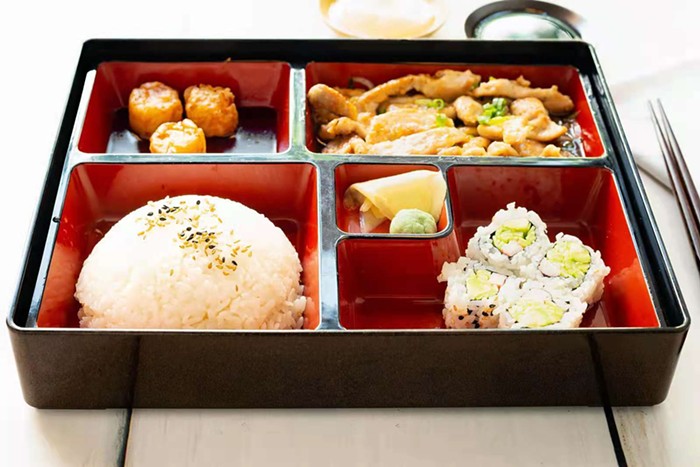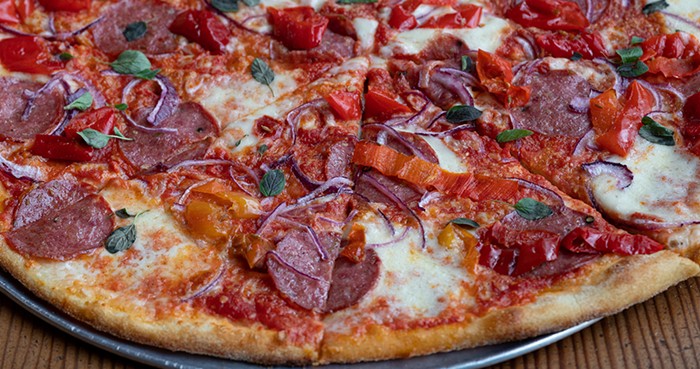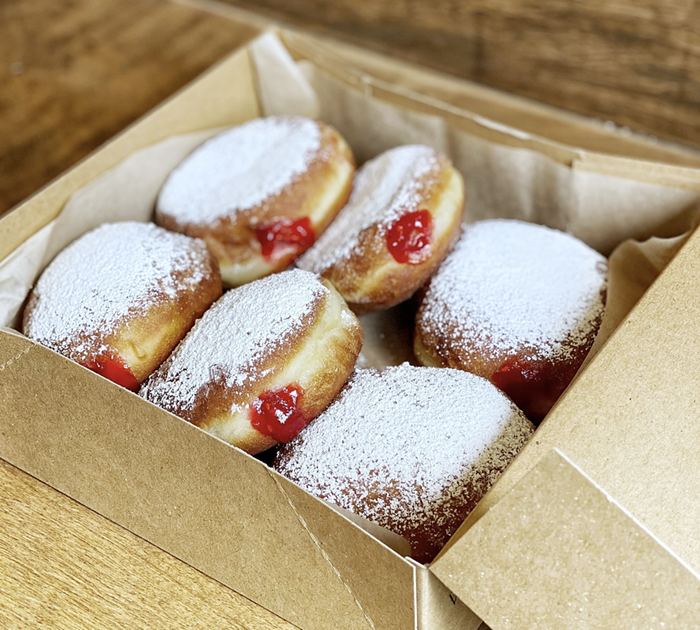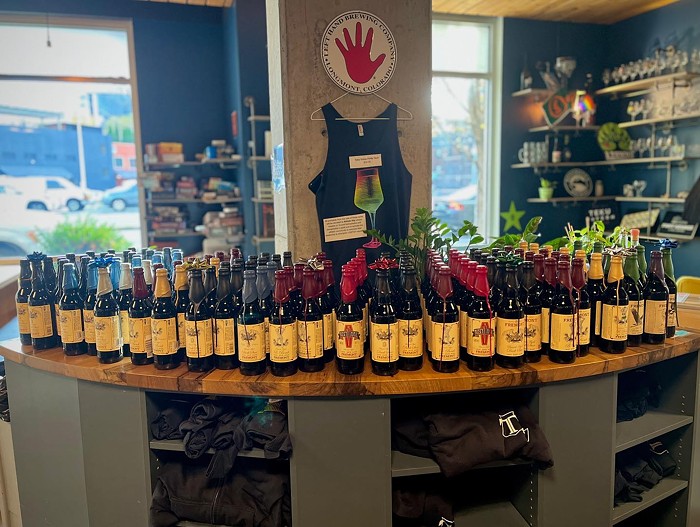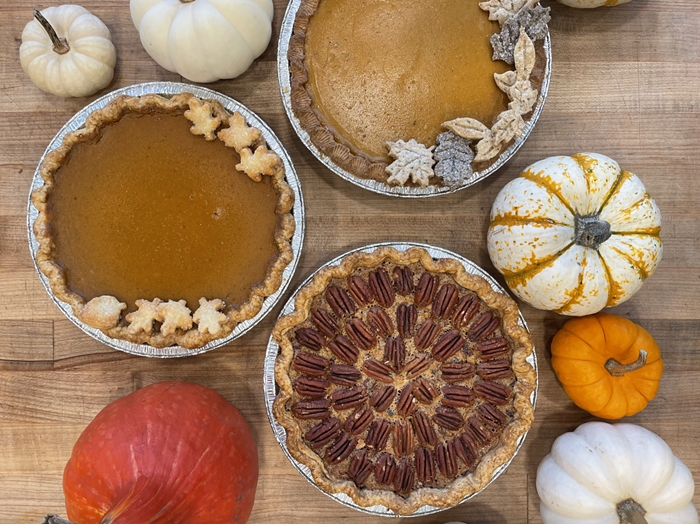Capitol Hill's got bars with "concepts." There are two upscale Mexican places (Barrio with its wall of candles, Poquitos with its 14,000 hand-painted tiles), at least two "speakeasies" (one behind the fake safe at Tavern Law, one behind a text-message-reservation system at Knee High Stocking Company), an auto-mechanic-themed sports bar (Auto Battery), a Cuban-esque nightclub (Havana), a steam-punk something-or-other (Grim's), a faux Bavarian beer hall (Von Trapp's), a carnival-style bar with rampant stripes (the Unicorn), a gluten-free cider pub (Capitol Cider, which is also old-timey because... just because). The Old West taxidermy of Linda's and even the medieval shabbiness of the Canterbury look practically authentic now, just by virtue of being more than a couple years old. It's like the goddamn Disneyland of drinking up here.
Maybe a Southern bar was inevitable? In any case, Capitol Hill got two of them—they opened approximately a week apart—last month: Witness on Broadway (where the UPS Store used to be) and Bar Sue on 14th (near Chop Suey, in the space where Lucky 8's recently failed to thrive).
But what the hell is a Southern bar? Tell people in Seattle that you're going to check out two new ones, and watch the jokes about Stars and Bars, etc. begin—then watch them descend precipitously into the worst of the cultural baggage attached to the USA's lower parts. "Southern hospitality" is not the first thing that occurs to folks around here.
Witness on Broadway is the old-fashioned American South as viewed through nicely liquored-up, rose-colored glasses. (We will leave for another time the consideration of Bar Sue.) Owner/barkeep/preacher-man Gregg Holcomb—formerly of Knee High Etc.—has installed a set piece that combines sitting on the front porch (complete with clapboard walls and a slatted dropped ceiling over the bar) with sitting in an actively anti-teetotalism church (glowing stained-glass windows, carved pews for booths). The bucolic painting behind the bar shows the romantic mind's-eye view from here, best gazed at with an expertly made mint julep in hand: rolling fields, a stately home, trees with Spanish moss that looks almost 3-D. Holcomb grew up in San Diego, but he comes by his idealized version of the past honestly: His mother is from New Orleans, his father, North Carolina.
Asked about Witness's Southern thing, a bartender with a welcoming manner and a sparkling smile says, "It's tongue-in-cheek, without too much thumb-in-the-eye." Get to talking to her, and she'll soon be giving you tastes of the syrups she stayed up late making; one's beet and ginger and tarragon, another's pumpkin. They're working on the new fall drink menu, and it's a staffwide endeavor, with everyone contributing and critiquing and, by all accounts, having an excellent time doing so. The bartender is especially excited about a colleague's roasted-pear and mezcal cocktail that may be on the way. Meanwhile, her concoction the Jonathan Edwards ($12), named after a fire-and-brimstone preacher whose photo hangs with an inspirational quote in the back—along with Frederick Douglass and a couple more—is made with Angostura bitters, cognac, Cointreau, lemon, sugar, egg white, and "wrath." The Son of a Preacher Man ($8) tastes like a hot toddy on ice, cooling and soothing with bourbon, lemon, honey syrup, and black pekoe tea.
The food at Witness is also American Southern with a twist. Dixie poutine ($8) has bacon-cream gravy and pimento cheese, ending up like a slightly spicy Velveeta concoction. The stand-up shrimp and grits ($13) also contains a pool of gravy, in case it wasn't creamy-rich enough for you already. A corn and smoked cherry tomato salad ($9), probably off the menu by the time you read this, tasted like a nostalgia-tinged good-bye to summer. At brunch, I tried the croque'd toad ($10), a croque madame crossed with toad-in-the-hole, topped with a pleasantly lightweight hollandaise (which wanted a bit more lemon); it could become a favorite. And two big bricks of biscuits were on the heavy side, but had very tasty house-made sausage gravy with an edge of cayenne ($8). Also at brunch: the stroke of genius of a Pimm's cup loaded with bits of strawberry ($8), plus the return of best-ever server Rodney Bradshaw, whose gentility and understated wit you may recall from the days of Cafe Septieme. Witness had a special card made up for that required-by-local-law note about eating raw or undercooked food; it's got a drawing of a hunched figure gesticulating over an out-held book. "Here's a food menu, and drinks, and a dire warning from the health department," Bradshaw said dryly.
The most remarkable thing about Witness, however, is indubitably Gregg Holcomb's weekly sermon, delivered on Saturday nights at 10. I had heard tell of a literal soapbox; instead, at the appointed hour, he promenaded up and down the space, waving his leather-bound journal, shouting for everyone's attention, and threatening jovially to eject anyone who didn't shut up. In the crowded bar, it worked miraculously well; in under a minute, he had everyone rapt. His first sermon, he explained, had been about fornication ("Because you should do it!"). He'd done another about a woman's place (anywhere the hell she wants to be). The sermon I witnessed had a somewhat confusing but rousing carpe-diem theme, including a true tale of group sex functioning as allegory. "Do more!" Holcomb exhorted. "There may not be another lifetime!" Could he get an amen? He certainly could, the whole bar hollering back on cue. It felt transformative and communal and just plain weird, like Witness itself. ![]()


